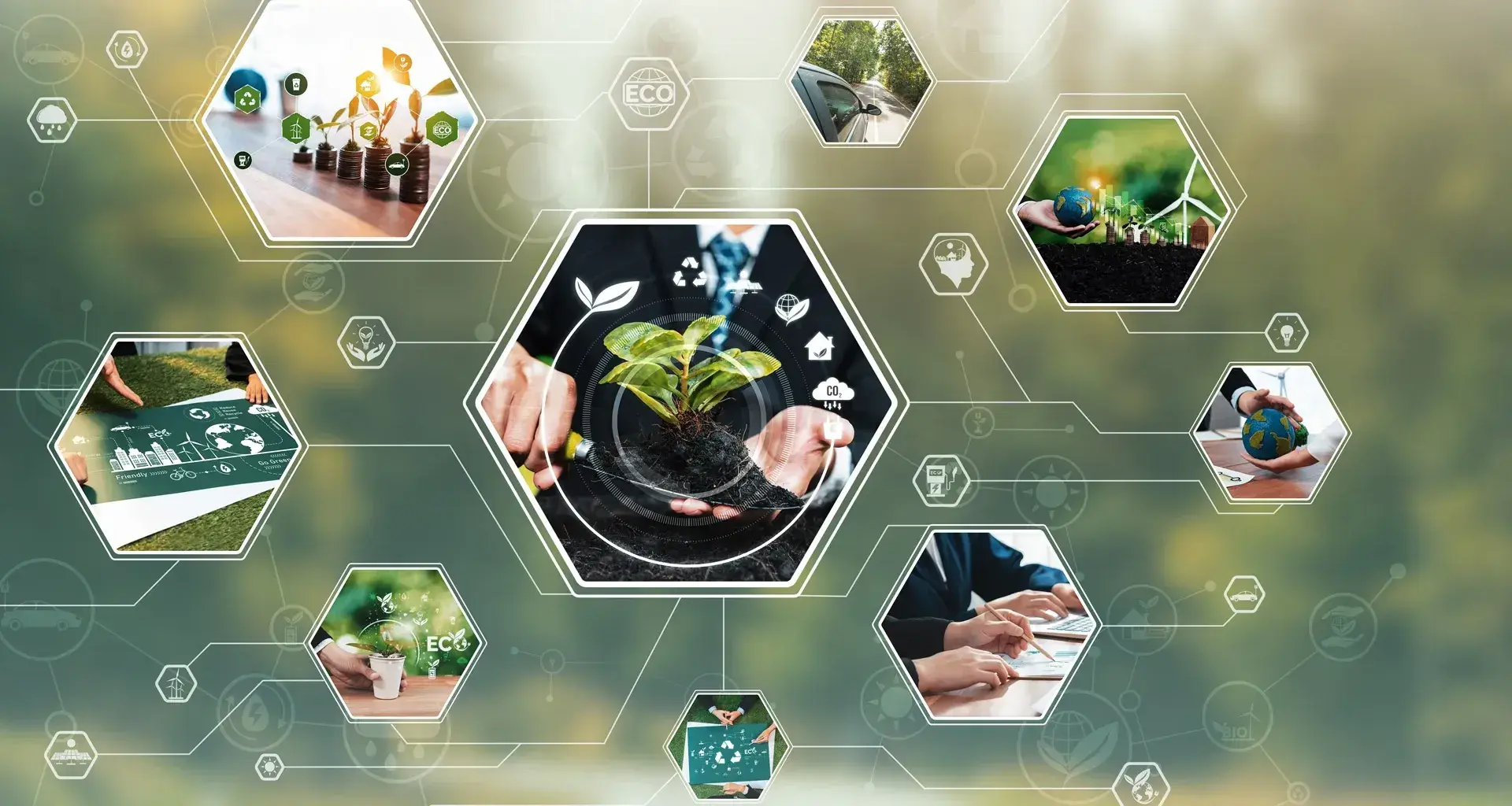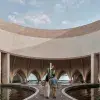Three years after the Tec’s students, faculty, and staff established Ruta Azul (Blue Route), its Sustainability and Climate Change Plan for 2025 in response to the climate emergency the planet is experiencing, it now includes more than 70 projects.
Tec Executive President David Garza emphasized that, since 2021, these Tec community projects have aimed to establish a proactive culture of climate and sustainable action for the planet.
“As university campuses are micro-cities, we see this topic as part of our responsibility at the Tec,” said Garza during the presentation of the 2023-2024 Ruta Azul Annual Report on Achievements and Progress.
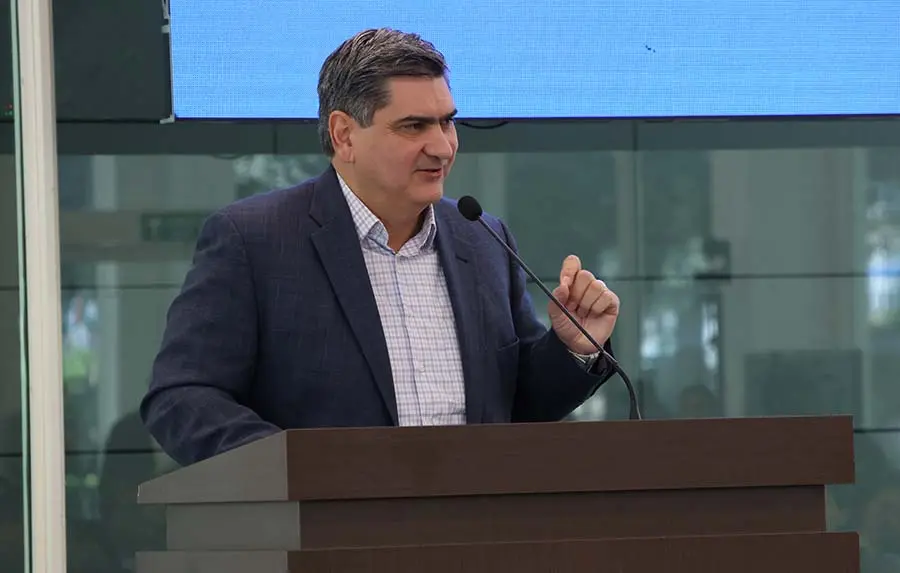
Paola Visconti, Tec de Monterrey’s Director of Sustainable Development and Outreach, said they have worked to ensure that actions are not only on campuses but also part of the lives of every person in the community.
“We aim not only to reduce impact but to create a culture of sustainability,” she remarked in her message.
You can see the presentation of the report in this video:
The Tec community’s sustainable actions
Estas son algunas de las acciones más destacadas que se realizaron durante 2023-2024 como parte de Ruta Azul:
These are some of the most important Ruta Azul actions from 2023-2024:
1. 28 working teams were established as strategic partners to implement national initiatives and align efforts on sustainability.
2. 10 campuses were assessed through the STARS (Sustainable Travel Accreditation and Recognition for Schools) methodology, with outstanding results.
- Campus Monterrey won gold.
- Guadalajara, Querétaro, State of Mexico, Mexico City, Santa Fe, Toluca, Puebla, Chiapas, and Sonora Norte won silver.
This methodology measures campus performance on sustainability issues in five categories: academia, outreach, operations, planning, and innovation.
3. To prevent and reduce the use of plastic bottles on campuses, 411 new drinking fountains were installed, giving a total of 954 nationwide. This system allowed the elimination of bottle sales in internal cafeterias and branches of ChilaquilesTec.
4. Launch of the TecFood2Go circular system of reusable containers, available at the Monterrey, Querétaro, and Guadalajara campuses. This avoids and reduces the use of disposable packaging.
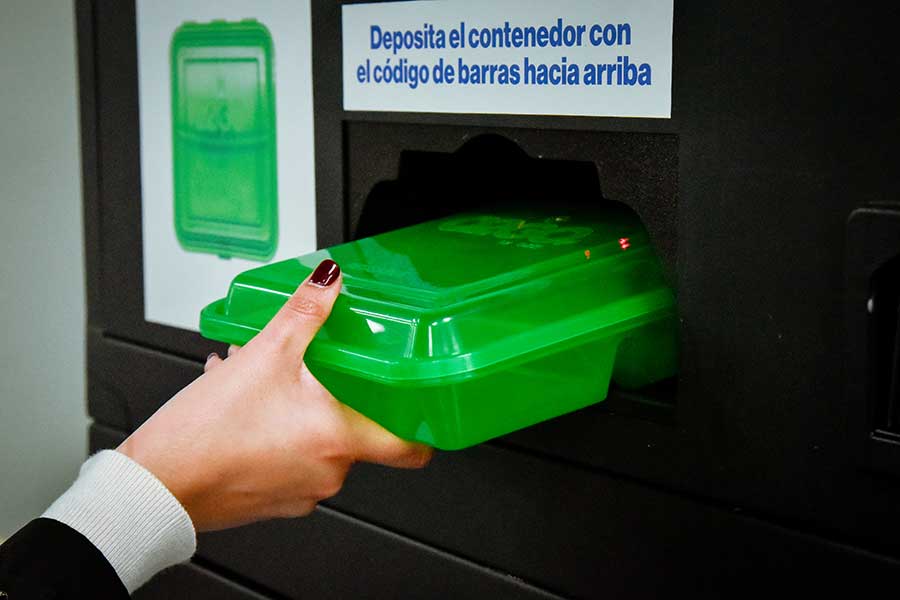
5. The Culture of Sustainability program was launched, aimed at the institution’s faculty and staff.
This program aims to provide basic concepts of sustainability and help us recognize the environmental impact of our actions.
6. Since 2022, the use of more than 300,000 plastic and 166,000 disposable bottles has been prevented at the institution’s flagship events through the Sustainable Events Guide.
7. The first meeting of (public and private) Mexican universities was held to join forces on mobilizing climate action in the country.
8. The institution obtained NGO observer status to United Nations Framework Convention on Climate Change processes and, along with 12 other universities, participated in the first Higher Education Pavilion at COP28 .
“We aim not only to reduce impact but also to create a culture of sustainability” - Paola Visconti, the Tec’s Director of Sustainable Development and Outreach
9. A 49% reduction in Scope 1 and 2 greenhouse gas emissions and institutional trips was achieved compared to the baseline year 2019.
“Scope 1 refers to fuels and gases we produce. We are now shifting our fleet to electric or hybrid vehicles.
“Scope 2 refers to electrical energy, where we use 70.5 percent renewable energy and achieved a 17.3 percent reduction in campus energy consumption, with a target to reach of 20 percent,” said Jaime Dorantes, the Tec’s Vice President of Operations.
10. In both Tec campuses and TecSalud hospitals, it achieved an annual average of 70.5% electricity consumption from renewable, solar, and wind energy sources.
11. In the second edition of ReciclaTec, 21 campuses collected and correctly disposed of more than 19 tons of waste.
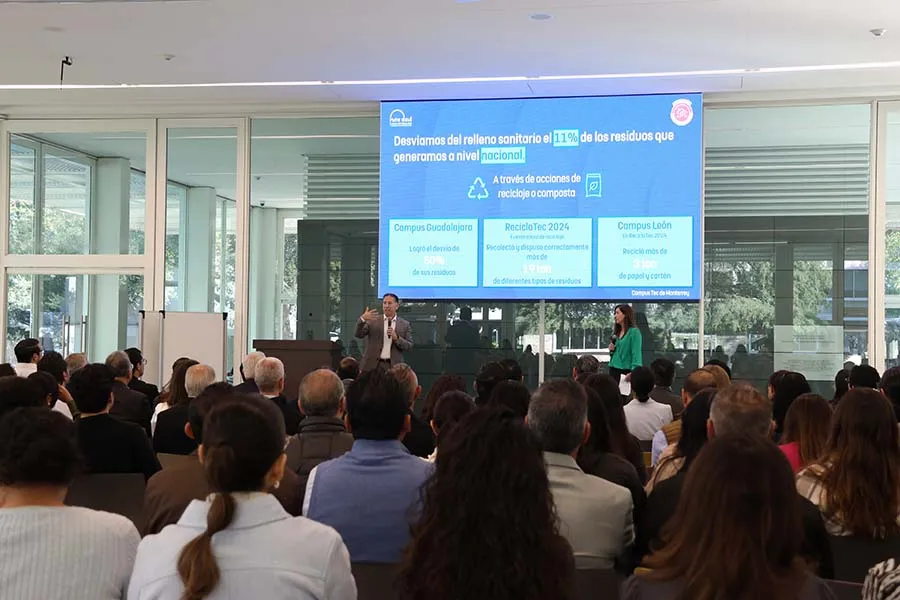
12. The program to diagnose and identify current risks and vulnerabilities to climate change on campuses was launched.
“Through this diagnostic, we identified 62 high-category climate risks to our campuses, the most common of which are heat waves, droughts, and extreme precipitation,” Dorantes added.
13. The inventory of trees in the various facilities of the institution was updated to 62,000.
14. Sustainable development was introduced as one of the curricular design principles for upcoming 2026 syllabuses.
“All students will be able to learn about sustainable development and climate change by developing cross-cutting skills,” Visconti said.
15. The first Ruta Azul applied research call was launched to support research projects on waste, water, and sustainable mobility on campuses.
You can read the complete report here.
What’s next for Ruta Azul?
Juan Pablo Murra, the Tec’s Rector, and Inés Sáenz, Vice-Rector for Inclusion, Social Impact, and Sustainability, discussed Ruta Azul, its achievements so far, and plans for the future.
“The challenge of having achieved all this is that the expectations going forward are significant,” the rector said.
Murra said that there are long-term goals for sustainable development, but they must be based on disruptive ideas.
“Our goal is to be carbon neutral by 2039, so we still have a long way to go, but we have to be ambitious and proactive when thinking ahead.
“It can’t be a continuous improvement; radical plans that allow us to really do things differently are needed. Although we’ve made progress, we’re far from where we need to be,” he added.
Inés Sáenz said that achieving the goal of decarbonization implied several challenges.
“Decarbonizing requires fundamental changes in the way we behave. The climate emergency demands much more from us, so even our lifestyle plays a role in this,” she said.
If you would like to read the full report, you can download it from the Ruta Azul website.
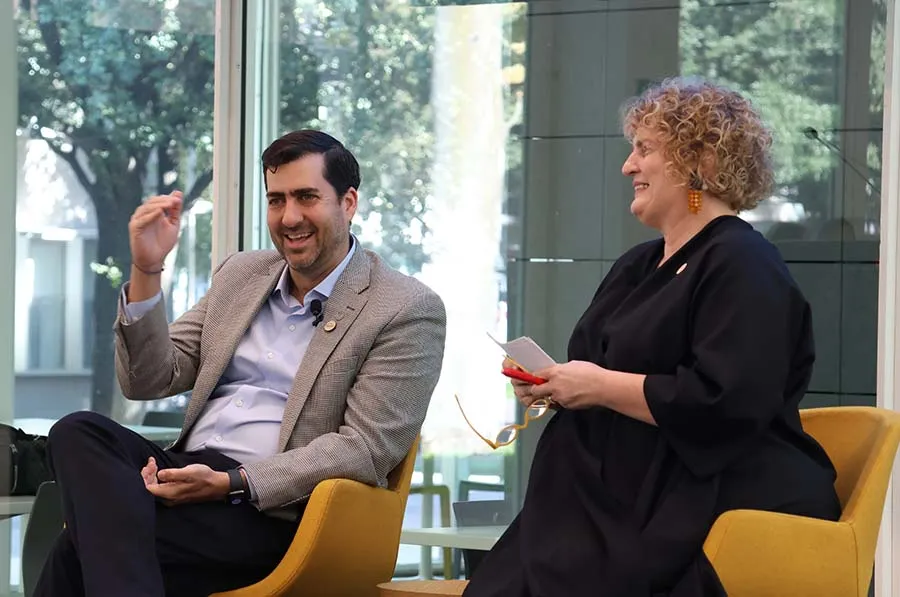
(Photo: Carolina Contreras)
About Ruta Azul
Ruta Azul is the name of the Sustainability and Climate Change Plan for 2025 established by the Tec community to help create a sustainable future.
It includes the following six pillars:
- Culture: to promote sustainable decision-making.
- Mitigation: to reduce the environmental impact of our institution’s operations.
- Adaptation: to minimize the impacts of climate change on our facilities, our community, and neighboring communities.
- Education: to develop leaders committed to building a sustainable future.
- Research: to promote interdisciplinary research for providing systematic sustainable development solutions.
- Outreach: to catalyze climate action in society as a whole.
The hope of Ruta Azul al 2025 (Blue Route to 2025) is for the Tec and its community to be role models for sustainable institutions by fostering a proactive culture in response to the climate emergency.
YOU’LL ALSO WANT TO READ:

